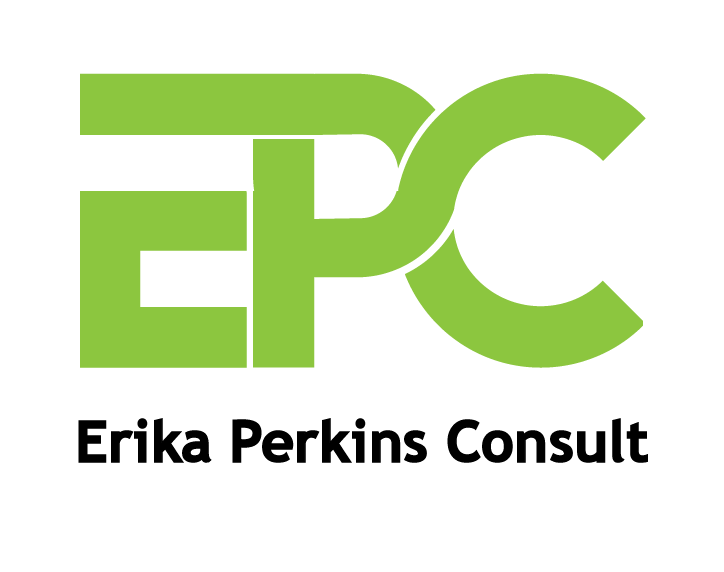- Mon - Sat: 8am - 5pm
- 8, B.T Owumi Road, Sapele, Delta State, Nigeria
- +234-805-502-8735, +1-346-857-6153
Operational Excellence
- Home
- Our Services
- Operational Excellence

Operational Excellence
At Erika Perkins Consult, we specialize in Operational Excellence, helping organizations streamline their processes, optimize performance, and achieve sustainable growth. Our mission is to equip businesses with the tools and strategies needed to enhance efficiency, reduce costs, and improve overall productivity.
Operational Excellence is more than just improving operations—it’s about creating a culture of continuous improvement that drives long-term success. By focusing on people, processes, and technology, businesses can eliminate inefficiencies, enhance customer satisfaction, and maintain a competitive edge.
Our Services
- Business Strategy and Planning
- Operational Efficiency and Process Optimization
- Risk Management and Compliance
- Human Resource Management
- Project Management
- Technology Consulting and Digital Transformation
- Operations and Maintenance Support
- Drilling Services
- Completion
- Decommission
- Training
- Assurance
- Emergency Response Support
- Technical Safety
Four Focus AREAS (4FA)
Health, Safety, Environmental & Security (HSES)
Excellence in health, safety and environmental protection and Security of our personnel and assets is a fundamental requirement for all Erika Perkins operations. Our success in maintaining high levels of reliability, efficiency and profitability is greatly dependent on excellence in HSES. EPC belief that all work can be executed incident-free will remain the guiding principle for all our actions. Realizing OE benefits requires a personal commitment from each employee in our company.
Reliability
Operational reliability is essential in meeting our business operational performance objectives and our customer commitments – whether they are external customers of energy and chemical products or internal customers of functional, technical or administrative services.
Reliability is the degree to which an operation of an asset or a process delivers the targeted level of operational performance in all focus areas. This is enabled through EPC high levels of asset, process, system, and resource integrity, availability and readiness.
Efficiency
Excellence in efficiency is essential to realizing the maximum value of EPC assets, increasing asset productivity, generating greater vields and improving profitability.
Efficiency is the degree to which delivery of products and services is accomplished with minimum loss, waste and input of resources, including: time, effort, energy, materials, and financial resources. Efficient operations yield fewer emissions, better product quality, more satisfied employees/customers, and better conservation of
natural resources.
Cost & Profitability
Excellence in cost effectiveness and profitability entails achieving maximum shareholder value through the careful management, control, and efficient use of resources; minimizing costs; eliminating waste, loss, and risk; minimizing total life cycle costs, and maximizing lifecycle net benefits and return on investment of EPC asset and process operations.
OE Enabling Elements
We have 13 OE enablers at EPC that help driver our business.
1. Leadership & Accountability
Inspiring leaders who demonstrate high levels of integrity and accountability are essential for driving and sustaining operational excellence.
Leaders must be actively and visibly engaged, personally committed, and consistently exemplifying values, principles and behaviors aligned with OE.
3. Human Resources
At EPC, the organization is regularly assessing developing, and improving the capabilities, talents of its people and needing them engaged to meet their full potential and business requirements.
5. Process Management
Process Management refers to the principles, disciplines, and practices by which EPC and Clients specific processes are designed, implemented, and managed to ensure high performance levels in all focus
areas
7. External Services
Contractors and suppliers are managed to ensure that products and/or services delivered on behalf of Erika Perkins are delivered in a manner consistent with OE
System objectives, expectations, and standards. The various external services rendered by contractors, suppliers, and other commercial agents directly impact the company’s performance, ability to deliver commitments, HSES goals, and reputation at large.
9. Information & Document Management
Current, accurate, complete, actively protected and timely information is essential for effectively managing our diverse consulting operations.
11. Risk Management
Risk is a future event with the ability to impact the organization’s mission, strategic and business plans, projects, routine operations, processes, objectives, assets, reputation or the delivery of stakeholder/customers expectations. Risk management reduces and controls the impact of undesirable events on all focus areas. Applying sound risk-based assessment and management proactively addresses and mitigates business.
13. EPC Social Responsibility
EPC has been, throughout its history, and will continue to be a contributor to the social and economic development of our communities and the country where we operate.
EPC social responsibility is the systematic expression of that value in our operations and activities, and, therefore, a key element within our OE System.
The organization continuously supports the social and economic development of its local community and the country we operate and serves as a role model for others.
2. Customer Focus
For any organization to achieve excellence, it is important to provide high quality products and/or services to customers within a reasonable time at a competitive cost. This is one of the many reasons our clients and customers are stucked with EPC.
4. Asset Management
Asset Management refers to processes, practices, disciplines and systems applied at EPC to ensure that performance-critical assets (i.e., facilities, systems, and equipment) are designed, fabricated, constructed, operated, inspected, and maintained to ensure high levels of operational reliability, integrity, and efficiency consistent with performance objectives in all focus areas, throughout the asset lifecycle
6. Financial Resources
Financial resources are managed to provide the greatest value for money in all aspects of our business. These resources are to yield direct and significant impact on the OE performance objectives, reflecting effective utilization of company financial capabilities and strengthening our cost competitive advantages.
8. Policies and Strategies
The organization ensures that its policies and strategies are aligned with vision, mission, and business objectives as well as reflecting the organizational structure and culture in which they operate. Plans, objectives, and processes are developed and deployed to implement the strategy.
10. Change Management
Sound change management is essential for achieving desired benefits while minimizing negative impact and adverse consequences of changes. Change management shall be applied for changes in operations, procedures, personnel, technology and organizations as needed.
12. Innovation Learning & Continuous Improvement
Organizations promote innovation, technology, learning, and continuous improvement to remain competitive in an ever-changing business environment.
A learning organization is one in which people at all levels, individually and collectively, identify, evaluate, develop, and promote adoption of best practices and lessons learned to continually improve performance and increase their capacity to produce the desired results.
Key OE Terms & Definition
The document that outlines the overall structure of the OE system and defines the general expectations from organizations to achieve and sustain industry-leading performance.
The ability of the organization to achieve and sustain industry-leading performance in reliability, efficiency, cost-effectiveness, and profitability, while striving for the highest world-class performance in Health, Safety, Environmental Stewardship and Security.
The collection of processes, practices, methods, tools, technologies, and organizational capabilities by which organizations consistently and systematically achieve OE.
A document that provides instructions, guidelines, general processes, and practices needed to accurately interpret the Erika Perkins Consult Excellence Framework and implement the OE system.
The organizational setup and process by which the OE system development, implementation, and performance will be managed.
The systematic and structured process for converting OE expectations into specific actions; and instilling the behaviors and attitudes required for successful and sustainable change at all levels in the organization.
The fundamental domains identified by Erika Perkins Consult, where achieving and sustaining leading performance exemplifies OE; including Health, Safety, and Environmental Stewardship – Reliability – Efficiency – Cost & Profitability.
The general organizational, individual, and transactional attributes or aspects necessary for sustaining leading performance.
The specific requirements for organizations or individuals that define the consistent and systematic approach for delivering predefined business outcomes, the sum of which describes the character of the industry-leading performance (i.e., OE).
The collection of activities integrated in a predefined sequence for combining resources to produce a specific product or Service outcome.
The systematic collection, review, and discussion of data and information gathered from multiple sources to develop a deep understanding of the level of OE system implementation and performance in the assessed organization.
